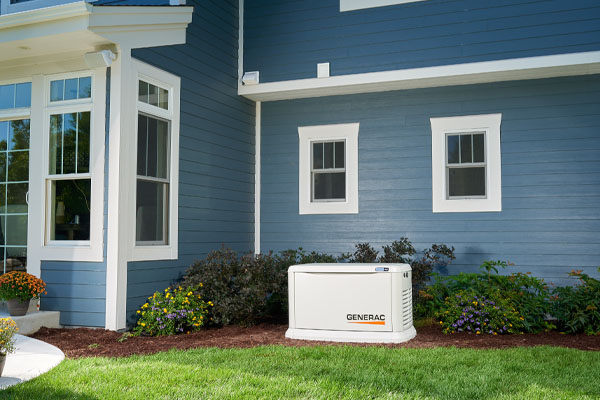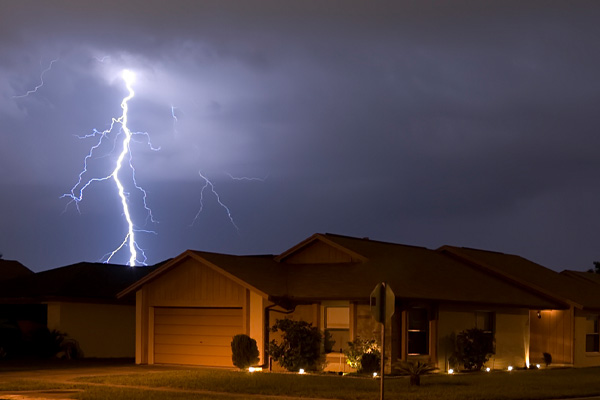How Does A Generator Work?

We have come a long way to ensure that we have access to reliable power. Unfortunately, even the most modern power grids are not perfect. Power failures still occur as a result of equipment failure, accidents, damage due to construction work, severe weather, and high energy demand. This is why many homes and buildings rely on on-demand generators to supply power during an outage. Generators also provide access to electricity in areas that are not within the supply radius of the grid. However, there are many who still inquire, “How does a generator work?”. In this article, we answer this question.
How Does a Generator Work?
Contents [hide]
A generator (usually referred to as a whole-house, on-demand, backup, or standby generator) is an appliance that uses mechanical energy and converts it to electrical energy. The electricity is then transmitted and distributed throughout a building. A generator is also used to power trains, aircraft, ships, and automobiles. In many areas, a generator is used as an alternative source of power.
A generator works using the principle of electromagnetic induction. Inside the generator is a copper conductor coil that rotates between a horseshoe-shaped magnet. The coil, along with its metal core is called an armature. This is connected to a source of mechanical energy (usually a motor). The armature is rotated to produce the energy required to power the generator. The engine of the generator uses fuel to run. This can be petrol, natural gas, diesel, or natural energy.
As the coil rotates, it will interfere with the magnetic field found within the two magnetic poles present in the horseshoe-shaped magnet. The interference in the magnetic field will agitate the electrons found within the conductor, which in turn induces an electric current to flow.
The alternator, also known as the generating unit, produces alternating current – the same one that the power grid supplies. Alternating current (AC) is a reliable and stable type of power. It can supply power to sensitive appliances such as ACs, computers, and even surgical equipment without fluctuating.
Generator engines vary in size. By far the type of generator with the largest engines are liquid-cooled types. These generators feature a pump to circulate a coolant throughout the unit as a fan blows air to decrease the temperature of the coolant. Liquid-cooled generators are best used in hot and humid areas to prevent the unit from overheating.
How Much Power Can a Backup Generator Produce?
The power capacity of a generator will depend on the size of its engine. With a larger engine, a generator can produce more energy to power more rooms or buildings. The output of a unit is usually indicated in W (Watts) or kW (kiloWatts). Watts is calculated as Volts x Amps. A 10kW generator that can deliver 240 Volts, for example, has an estimated output of 41.67 or 42 amps. This should be enough to power one 1200 W refrigerator, one 1000 W sump pump, one 1000 microwave oven, one 500 W furnace fan, and one 1000 W microwave oven, along with about 10 lighting circuits that total 1000 W. There is enough energy to power smaller appliances such as a laptop, desktop computer, and a radio, depending on their required input.
Benefits of Using an On-Demand Generator
The main benefit of a standby generator is having access to an alternative source of power during an emergency. Power outages can and will occur, which makes generators that much more important, particularly in areas where electricity sources tend to be unreliable. Having access to a generator is also critical for businesses and services that depend on electricity to perform. These include pharmacies, factories, hospitals, and clinics.
Standby generators are also necessary for use by medical staff and care personnel during emergency situations such as natural disasters. Generators not only provide lighting but also the power to equipment and appliances that perform rescues, surgical procedures, and other essential services.
Another key benefit that generators can offer is damage and waste prevention. Generators have a feature that allows them to turn on immediately once the power goes out. This allows appliances and equipment to keep running and ensuring that operations are smooth and unhampered. Since there is the power to keep appliances turned on, products such as food and medications will continue to be produced. Access to electricity produced by a generator also helps prevent damage from spoilage and the growth of microorganisms. Those who work from home have continued access to their computer, meaning that there will not be lost time from work. Also, you can ensure the comfort of your home since you will be able to operate your heating and cooling system.
Features Of A Whole-House Generator

- Power: Generators are available in different power output capacities that can power structures such as a small home or office or larger structures such as buildings and factories. The availability of different power capacities allows end-users to match their requirements to the model they choose.
- Fuel: A generator can be fueled by petrol, LPG, natural gas, diesel, and alternative energy sources. These fuel options allow a wide range of consumers to use a generator for their power needs.
- Noise: Older generator models were notorious for the noise they produced. However, there are many generator models that are equipped with noise-reducing technology, which means they can be used close to a building or next to structures such as schools, offices, zoos, and hospitals, among others.
Conclusion
Other than providing comfort and convenience, generators can be literal lifesavers. They are flexible and stable, and you can rely on them whenever the power grid goes down. Not only are generators safe to use, but they are also easy to operate, thanks to improved design and added features. The most reliable brands are also long-lasting, which means they can be relied upon to provide power for many years. There are factors that should be considered before buying a generator, however. This is to ensure that the capacity and type is a good fit for the power requirements you might have. If you are unsure, consider discussing your needs with a professional who can help you make an informed decision about the best option for your needs.
Call McAllister Energy For Standby Generator Requirements

McAllister Energy offers high-quality whole-house generator services in Camden County, New Jersey. Our team is made up of professionally certified technicians who conduct superior standby generator services, including backup generator repairs, installations, and maintenance. All our techs provide accurate whole-house generator services on time, every time.
Our company guarantees affordable on-demand generator service rates. By working with us, you can expect reliable services, friendly personnel, and honest, transparent rates. Your satisfaction is important to us, so all our work comes with a guarantee. Book a service appointment with McAllister Energy today. We provide free, in-home estimates.
You can click here to contact us now or call us at (856) 665-4545 to find out more!